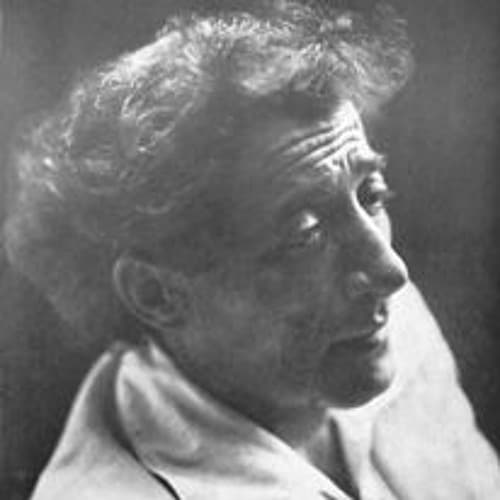Death of Grikor Suni (December 18, 1940)

Grikor Mirzaian Suni was a composer, conductor, ethnomusicologist, and teacher, who had a prolific, yet not well-known career, from the Caucasus to the United States.
He was born Grikor Mirzaian on September 10, 1876 in the village of Getabek, in the Armenian region of Gandzak (Ganja, today in Azerbaijan). He came from a line of musicians and his possible descendance from the princely family of the Siuni made him adopt the surname Suni.
He lived in Shushi (Gharabagh) from 1878-1891 and studied in the parish school of Shushi. In 1891, Suni left home and began studies at the Gevorgian Seminary, where he studied music with Kristapor Kara Murza and then Gomidas Vartabed. Upon graduating in 1895, he returned to Shushi, formed a choir, and presented his first concert of his own arrangements of Armenian folk songs. Its success led him to continue his studies in St. Petersburg in the same year. He took private lessons for three years and entered the theoretical composition class of Nikolai Rimsky-Korsakov at the St. Petersburg Conservatory of Music in 1898.
From 1899, Suni was director of the Armenian Church choir, teaching the new Yekmalian liturgy. He founded and directed a choir and an instrumental folk song group, and organized concerts and student events. He married university math student Nvart Sonyants and they had eight children. He graduated in 1904, the same year when he published his first folk song collection.
Upon his graduation, Suni was asked by the Russian Imperial Music Society to travel in the Caucasus and Russia to collect folk music and organize concerts. His first concert was back in Shushi, probably in the summer of 1905. Immediately after the concert, the imperial power forbade him to appear publicly. Therefore, he accepted the invitation to teach in Tiflis at the Nersissian School, but his political activities as a member of the ARF, for which he had been under surveillance for a number of years, forced him to flee to Western Armenia in 1908 with his family, where the restoration of the Ottoman Constitution promised a more tolerant regime. He had written various revolutionary songs, including the lyrics and music for the ARF anthem, “Mshak Banvor.”
Suni organized and directed choirs and taught in Trebizonda, Samson, Kirason, and elsewhere. During these years he devoted particular attention to the collection of Armenian musical legends, as well as folk songs throughout Western Armenia, studying the elements of Armenian music that give it its specific character. In 1910 he left the ARF and moved to Erzerum, where he taught until 1914 at the Sanasarian school. When World War I broke out, he managed to return to the Russian Empire and settled with his family back in Tiflis.
During the war, Suni conducted the Symphony Orchestra of Tiflis and founded an Armenian opera company, and he also cofounded the Society of Armenian Musicians. He composed operas, operettas, stage music, orchestral works, orchestral accompaniments to choral, solo, and liturgical works, and orchestral arrangements of other composers’ works. In 1919-1920, he traveled to Tehran, India, and Egypt. In October 1919, the government of the Republic of Armenia invited Grikor Suni to be the founder of a national conservatory of music, but apparently he did not accept the offer. After Georgia became Soviet in 1921, Suni was targeted as a political enemy, and therefore he fled to Constantinople, where he taught at six Armenian schools and conducted a co-ed choir.
After the Kemalist takeover, Suni and his family migrated to the United States in 1923. The Armenian Church of America brought him to create church choirs. After a brief stay in New York, he began work with choirs in five Boston area churches. In 1925, he moved to Philadelphia, his final home. He conducted church choirs and organized folk choirs, which won first prizes in interethnic competitions. He directed “Suni Choruses” around the East Coast and Midwest, including New York, Boston, Worcester, Providence, Philadelphia, Detroit, and Chicago.
Suni became a staunch supporter of Soviet Armenia and in 1934 he published in New York a song collection, Songs for a New Life. The following year, the fortieth anniversary of his musical debut was celebrated in the United States and Soviet Armenia with jubilee concerts, and the formal organizing of the Suni choruses as the Armenian Musical Society of America. Soviet Armenia published a volume of ten of his works for voice and piano. However, in 1937, at the time of the political purges in the Soviet Union, Suni made a public criticism of Joseph Stalin. The news traveled back, Suni was rejected by the Soviet regime, and his music was repressed for decades.
Suni, who had endured health problems since the 1920s, passed away on December 18, 1939, in Philadelphia. In the 1940s, his children and students published four volumes of his songs.
